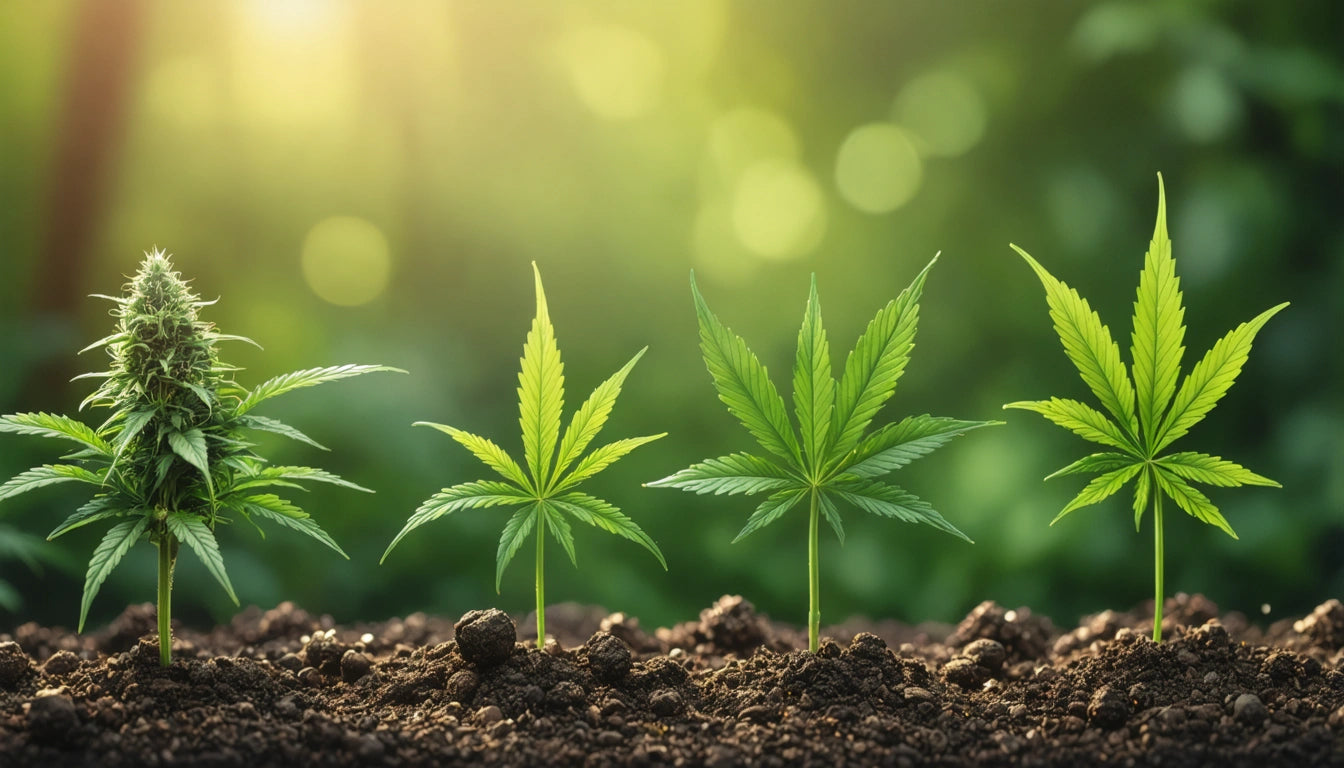Table of Contents
How to Obtain and Navigate Delaware Cannabis Licenses: Application, Processing, and Sales
Delaware's cannabis industry continues to evolve with expanding opportunities for entrepreneurs. Understanding the intricacies of obtaining a Delaware cannabis license is crucial for anyone looking to enter this growing market. This comprehensive guide covers everything from application requirements to operational compliance for retail, manufacturing, and processing licenses.
Delaware Cannabis Market Overview
Delaware's cannabis framework operates under a dual system. The state has an established medical marijuana program and has recently enacted adult-use legislation. Delaware's journey to legalizing marijuana culminated in 2023 with the passage of HB 1 and HB 2, which legalized possession and created a regulatory framework for adult-use cannabis.
The Delaware Office of Medical Marijuana (OMM) oversees the medical program, while the newly formed Office of the Commissioner of Marijuana Control (OCMC) will regulate the adult-use market. Currently, the state has a limited number of operating compassion centers (dispensaries) serving medical patients, with expansion planned as the adult-use market develops.
Types of Cannabis Licenses in Delaware
Retail Licenses
Retail licenses in Delaware permit the sale of cannabis products to qualified patients or adult consumers. These licenses are highly sought after, with the Delaware cannabis retail license for sale opportunities being limited by state caps. The state plans to issue up to 30 retail licenses, with 15 reserved for social equity applicants.
Manufacturing Licenses
A Delaware cannabis manufacturing license allows for the production of cannabis-infused products. These operations require specialized equipment and adherence to strict safety protocols. When preparing products, manufacturers must use appropriate child-resistant packaging components like specialized jar caps to ensure product safety and regulatory compliance.
Cultivation Licenses
Cultivation licenses permit the growing of cannabis plants. Delaware's program divides these into tiers based on canopy size, with different fee structures for each tier.
Processing Licenses
The Delaware cannabis processing license covers the extraction of cannabinoids from plant material and their refinement into concentrates. This license type requires demonstration of technical expertise and safety protocols.
Testing Licenses
Independent testing laboratories verify the safety and potency of cannabis products before they reach consumers. These facilities must be accredited and follow strict scientific protocols.
Highlight: Delaware's cannabis licensing program prioritizes social equity, with specific license allocations and assistance for qualifying applicants from communities disproportionately impacted by cannabis prohibition.
Application Process for Delaware Cannabis Licenses
The Delaware cannabis license application process involves several stages:
- Pre-qualification: Verification of Delaware residency, background checks, and financial disclosures
- Business plan submission: Detailed operational and financial projections
- Location approval: Confirmation that the proposed site meets zoning requirements
- Final application review: Comprehensive evaluation by regulatory authorities
- License issuance: Upon approval and payment of required fees
Application windows are announced by the regulatory authorities, with separate periods for social equity and general applicants. Timing is critical, as understanding licensing and program requirements in Delaware can help applicants prepare in advance of these limited windows.
Key Requirements for License Approval
Financial Requirements
Applicants must demonstrate sufficient capital to launch and sustain operations. This includes proof of funds for facility development, equipment, inventory, and operating expenses for at least the first year. License fees vary by type:
- Retail: $5,000 application fee, $40,000 initial license fee
- Manufacturing: $5,000 application fee, $40,000 initial license fee
- Cultivation (Tier 1): $5,000 application fee, $40,000 initial license fee
- Processing: $5,000 application fee, $40,000 initial license fee
- Testing: $5,000 application fee, $10,000 initial license fee
Location and Zoning
Facilities must comply with local zoning ordinances and maintain minimum distances from schools, parks, and other sensitive locations. Securing a compliant location before applying is essential, as property control must be demonstrated during the application process.
Security Plans
Comprehensive security protocols are required, including surveillance systems, access controls, and inventory tracking. These plans must be developed by qualified security professionals and address all aspects of facility and product security.
Operating Procedures
Detailed standard operating procedures (SOPs) covering all aspects of the business are mandatory. These must address quality control, employee training, inventory management, and compliance with state regulations.
Navigating Compliance After Licensing
Once a Delaware cannabis license is secured, maintaining compliance becomes an ongoing responsibility. Licensees must:
- Implement seed-to-sale tracking systems
- Maintain detailed records of all transactions
- Submit to regular inspections by regulatory authorities
- Ensure all products meet testing and labeling requirements
- Conduct background checks on all employees
Understanding Delaware's cannabis and marijuana laws is essential for ongoing compliance, as regulations continue to evolve with the developing market.
Strategies for Successful License Acquisition
With limited licenses available and high competition, strategic approaches can improve chances of success:
Community Engagement
Building relationships with local communities and demonstrating positive impact can strengthen applications. This includes creating jobs, supporting local initiatives, and addressing community concerns proactively.
Expert Consultation
Engaging consultants with experience in cannabis licensing can provide valuable guidance. These professionals understand regulatory nuances and application best practices that can make the difference between approval and denial.
Social Equity Qualification
Delaware's program includes specific provisions for social equity applicants. Qualifying individuals should leverage these opportunities, which include technical assistance, reduced fees, and dedicated license allocations.
Comprehensive Preparation
Successful applicants typically begin preparation months before application windows open. This includes securing real estate, developing business plans, arranging financing, and building operational teams.
The Delaware cannabis licensing landscape continues to develop as the state implements its adult-use program. By understanding the requirements, preparing thoroughly, and staying informed about regulatory changes, prospective licensees can position themselves for success in this emerging market. For those seeking additional guidance, this comprehensive guide for obtaining cannabis licenses across different states provides valuable comparative insights.











Leave a comment
All comments are moderated before being published.
This site is protected by hCaptcha and the hCaptcha Privacy Policy and Terms of Service apply.